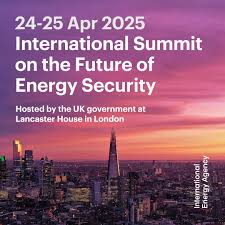
King Mohammed VI’s vision for achieving energy sovereignty,and Morocco’s strong commitment to reshaping the global energy landscape were highlighted at a ministerial session of the Future of Energy Security Summit held in London.
This came in the address delivered before the session by Morocco’s Minister of Energy Transition and Sustainable Development,Leila Benali.
The Moroccan official emphasized the urgent need for radical changes in global infrastructure and underlined Morocco’s leading role in building a new energy security paradigm,one grounded in stronger investment and modernized energy networks.
She cited the speech delivered by King Mohammed VI at COP28,where the Monarch urged the world to move beyond incremental steps,and stressed that the royal directives are key to fast-tracking the global energy transition.
Despite being a middle-income country,Morocco carries significant responsibility,Benali noted,capitalizing on its strategic cultural,logistical,and energy ties with Europe and the Atlantic. 2025 is a pivotal year for the Kingdom’s investment strategy,with plans to quadruple annual investments in renewable energy and increase investments in grid infrastructure fivefold,she added.
The Royal vision of energy security goes beyond securing supplies of molecules and electrons. It aims to overhaul the energy ecosystem through deepening strategic partnerships,protecting energy assets,building robust value chains,laying the groundwork for energy and social justice,promoting sustainable development,and adopting smart,participatory grid management models,she explained.
She also insisted on regional and continental integration,a cornerstone of Morocco’s strategy,to meet future challenges,pointing out that energy security is impossible without genuine regional and continental integration.
She recalled in this connection the launch by the Kingdom of a major $6 billion tender for gas infrastructure and connection to the Africa-Atlantic pipeline,a project designed to streamline the flow of gas and green hydrogen between Africa and Europe while supporting energy transition efforts regionally and globally.
The minister also called for a revamp of multilateral financial institutions,pleading for a more integrated and agile international financial system,one capable of supporting energy security initiatives,aligning global policy efforts,and accelerating progress toward the Sustainable Development Goals (SDGs) and overall social well-being.
Morocco has been able to put in place an ambitious strategy that’s already delivering results,she said,recalling Morocco’s early entry into the global LNG market,the signing of gas contracts ahead of infrastructure development,and large-scale projects like the Nigeria-Morocco gas pipeline.
This approach is fully reflected in the national energy strategy,launched in 2009 under the leadership of King Mohammed VI,built around three fundamental pillars: renewable energies,energy efficiency,and regional integration,the minister added.
Benali also noted that the pipeline remains today the most cost-effective way to transport energy,whether natural gas or hydrogen,adding that Morocco,given its infrastructure and geographic location,is currently the only country with a competitive edge in linking Africa to Europe,this unique geostrategic position makes it an essential energy corridor,among the five largest in the world in terms of value chains.
The two-day summit,co-hosted by the International Energy Agency (IEA) and the UK government,was chaired by IEA Executive Director Fatih Birol and UK Secretary of State for Energy Ed Miliband. The event brought together more than 120 high-level officials from over 60 countries,reflecting growing global awareness that prosperity and stability are closely tied to energy security.
United News - unews.co.za